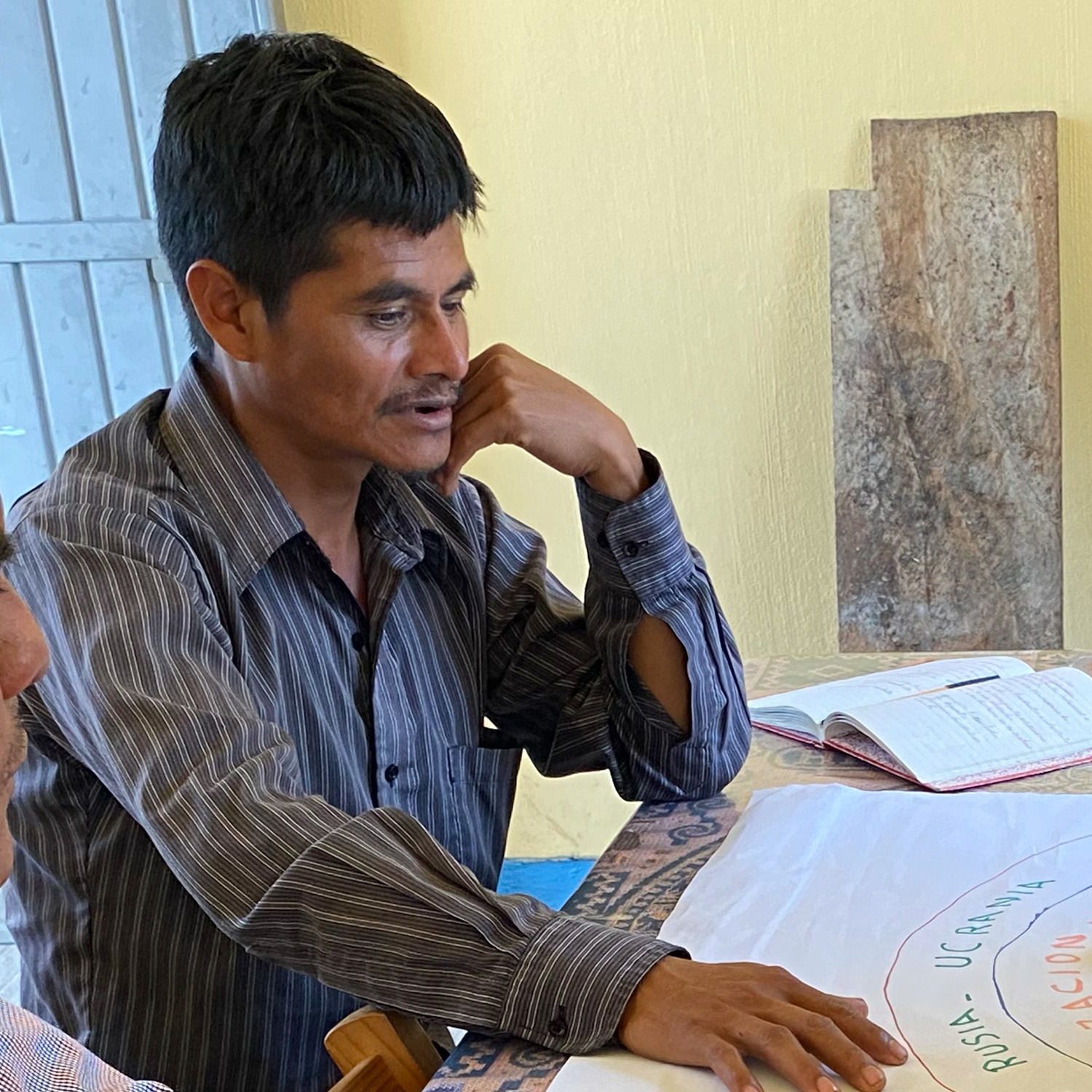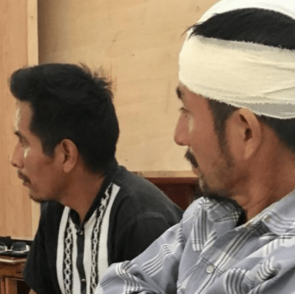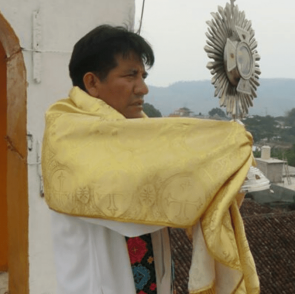International human rights organisations express their concern about the context of risk for Indigenous defenders in the state after joint visit to Chiapas

Mexico City and Dublin, 12 April 2023
During the week of March 27-31, 2023, Indigenous Peoples Rights International (IPRI) and Front Line Defenders conducted a joint visit to Chiapas with the objective of documenting the situation of risk and violence experienced by indigenous defenders, organisations and communities in the state. We met with 30 defenders and indigenous authorities relating to 12 cases of human rights defenders and community processes in whichrisks are faced in relation to their human rights work. These include that of the Tseltal, Tsotsil and Ch'ol peoples in the municipalities of Palenque, Tila, Chilón, Chenalhó, Ocosingo, Simojovel, San Cristóbal, San Juan Cancuc, Aldama and Chicomuselo. In these meetings we received information about a new wave of violence against defenders and indigenous Ch'oles, Tsotsiles and Tseltales communities, as well as various concerns regarding the impunity that has accompanied this context.
In addition to meetings and interviews with local, national and international civil society organisations based in Chiapas, two meetings were held with government authorities: one with the Director of Human Rights of the General Secretariat of Government, Marisol Gómez Hernández, and a second with the Attorney General's Office, represented by Dr. Manuel de Jesus Corado de Paz, Director of Attention to Victims, and Dr. Pedro Sergio Becerra Toledo, Director for the Protection of Journalists and Human Rights Defenders.
These are the main findings of both organisations from this visit:
We identified a clear pattern of criminalisation against indigenous defenders who work on environmental rights, territory, autonomy and self-determination of their communities. This pattern is evident in the growing number of cases, fabrication of crimes and violations of due process with a strong impact on community organisation and the struggle for collective rights. We observed this in cases such as that of Cristóbal Santiz from Aldama and Father Marcelo Pérez Pérez from San Cristóbal.
In the current context of criminalisation of defenders and communities, there is a defined pattern of criminalisation against those who have opposed the militarization of their communities and as part of their struggle in defense of their collective rights. This can be seen in the cases of Manuel Santiz Cruz from the community of San Juan Cancuc, César Hernández and José Luis Gutiérrez from the ejido of San Sebastián Bachajón in Chilón (who are awaiting their next hearing on April 24), Cristóbal Santiz from Aldama, and in the case of the recent investigations against defenders in the community of Taniperla in Ocosingo.
We observe the lack of lasting solutions to agrarian and territorial conflicts in the communities, which continues to represent a high risk for human rights defenders and continues to perpetuate the decomposition of the social fabric of the communities. This has been aggravated by the current situation of land dispossession in the context of the militarization of the region, the dispute for territorial control, and the imposition of economic activities by organized crime groups.
There is a lack of timely interventions by State authorities in the face of the threats and risks faced by defenders of indigenous communities in Chiapas. Despite the fact that defenders at risk have reported and/or denounced serious threats and attacks, the authorities have failed to intervene before many of these threats and attacks lead to cases of serious human rights violations. This has been the case with the murder of the defender Simón Pedro Pérez, former president of the board of directors of Las Abejas de Acteal; the situation with the 5 displaced families of Nueva Palestina, municipality of Ocosingo as a consequence of a chain of serious human rights violations. These violations included: disappearance, attempted homicide, sexual torture, injuries, burning and destruction of their properties, which led to the displacement of 25 people, including children and adolescents; as well as physical violence, harassment and death threats against the Tsotsil defender Pascuala López López from the ejido Pinar Cuxtitalli, in San Cristóbal de Las Casas.
We recognize with concern that human rights defenders and their communities carry out their work in defense of human rights in a context of proliferation and diversification of armed groups, which has worsened a complex situation inherited from the context of paramilitarism in the 1990s and the continued impunity connected to this phenomenon.
We gathered important testimonies that show the existence of links between state and municipal authorities and organized crime, which generates favorable conditions for impunity to prevail. Added to this crisis is what we identified as a pattern in the delay and postponement of hearings in cases related to human rights defenders, both in the process of seeking justice, as in the case of the murder of human rights defender Simón Pedro Pérez López, or in the process of criminalization of human rights defenders, as in the case of Manuel Santiz Cruz from the community of San Juan Cancuc.
Finally, we identified within state government institutions a lack of recognition of the work of human rights defenders and indigenous communities. This is particularly clear in the sentence handed down on March 31 regarding the murder of human rights defender Simón Pedro, where his work in defense of human rights was never incorporated into the investigation or the resolution as part of the motive for the killing. The lack of recognition of the work of human rights defenders and the resulting risk adds to the context of stigmatization and smear campaigns against human rights defenders, as has been the case of the defender Father Marcelo Perez Perez.
Front Line Defenders
Indigenous Peoples Rights- International-IPRI
Contact:
Sandra Patargo. Protection Coordinator for the Americas at Front Line Defenders
+55 11 98823-4620
Citlalli Hernández Saad, National Coordinator in Mexico at Indigenous Peoples Rights- International-IPRI
+52 1 614 130 6883



